Classes without drums
In the yellow light of simple light bulbs, Ms. Loc Thi Ngan (born in 1978), a Nung ethnic, in Ban Me village, Thien Hoa commune, Lang Son province, is still attentively writing each stroke. Her face radiates determination. Her hands, once accustomed to holding hoes and sickles, are now practicing holding a pen with great hope.
“In the village now, many people can read, write, and calculate. If I don’t know, I’m very backward. Now I can write my name and read a few simple lines when doing administrative procedures, without having to fingerprint like before. I’m very happy,” Ms. Ngan shared.
Like Ms. Ngan, Mr. Hoang Van Quang (born in 1972), a Nung ethnic, living in the same village, is now over 50 years old and has just learned to read and write for the first time. Because his family was poor and his house was far from school, he never went to school as a child. For many years, he only knew how to farm and farm, living by manual labor. When he heard that the commune was opening a literacy class, he immediately registered.
“Even though I have to wade across rivers and walk through the forest every night, I still go to school regularly. I just hope to learn to read and write, and not fall behind society,” said Mr. Quang.
The literacy class in Khuoi Me and Ban Me villages started in July 2024, organized by Yen Lo Primary School for Ethnic Minorities, with a total of 30 students - 100% of whom are Nung ethnic people.
The special thing here is that the class is not divided by age but by level of understanding. The oldest person is 60, the youngest is almost 40. All have never been to school and speak limited Mandarin.
“Most of the students here are laborers, working in the fields during the day and attending class at night. Therefore, classes are held in the evening, with 8 periods per day. During the harvest season, the workload is reduced and homework is given,” said Mr. Hua Van Muoi, the teacher in charge of the class.
The biggest difficulty is not the spirit of learning but… the way to class. Ban Me and Khuoi Me are located on both sides of the river, without a bridge. Every time they get to class, students have to wade across the river or go by raft. During the rainy season, the river water rises, forcing classes to be canceled because they cannot cross.
“We just wish there was a solid bridge across the river so that people could feel secure going to school every day, especially during the rainy season,” Mr. Muoi added.
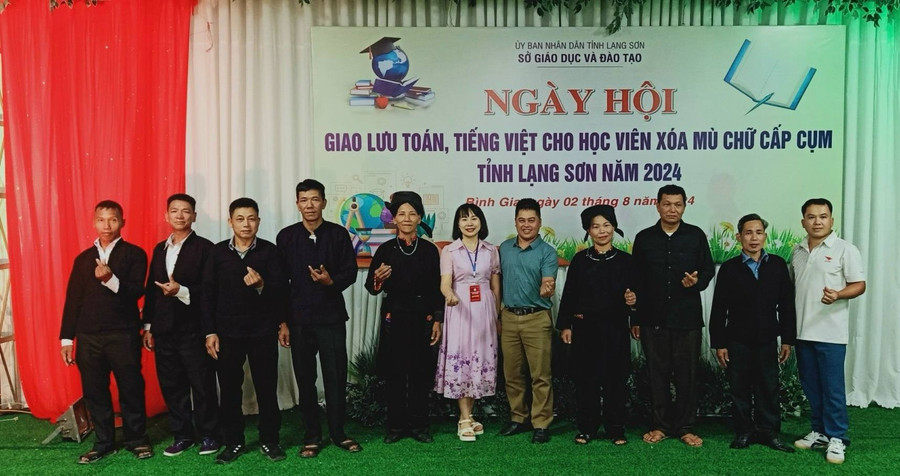
Plug in the text
“The teachers are all professionals who can communicate in the Nung ethnic language. Because the students cannot speak the common language, the teaching method must also be appropriate, teaching and explaining at the same time, speaking and illustrating at the same time. Sometimes we have to teach with all our hearts,” said Mr. Lam Van Van, Vice Principal.
Because the school is more than 7km from the commune center and traffic is difficult, most teachers have to stay at school, sacrificing their summer vacation to maintain the class.
Despite many obstacles, thanks to the close coordination between the commune government and the school, the literacy classes here have now completed their courses.
Mr. Lam Van Van said that although there are still many difficulties in terms of facilities, terrain and learners' qualifications, the effectiveness of the literacy classes is very clear. Students can now write their names, read basic information, do simple calculations and do some administrative procedures without needing help from others.
“Literacy is like light, helping them to be more confident and proactive in life, creating a foundation for economic development, accessing social services, thereby reducing poverty and developing sustainably,” he said.
The Nung ethnic people in Thien Hoa commune in particular and Lang Son province in general have been changing every day. Those small letters, each faltering stroke of the pen are opening a new door, where knowledge leads the way, where faith is awakened in each learner's eyes.
Education is the foundation for human and community development. In disadvantaged areas, adult education, especially literacy, is not only an educational task, but also a social responsibility, a bridge between tradition and modernity.
The classroom by the river is still lit every night, the sound of reading still echoes through the mountains and forests of Lang Son. Each letter sown today is a green seed for the future, a future where ethnic minorities are no longer illiterate, no longer disadvantaged.
Source: https://giaoducthoidai.vn/sang-den-lop-hoc-ben-song-post739953.html



![[Photo] Politburo works with the Standing Committee of Lai Chau Provincial Party Committee](https://vphoto.vietnam.vn/thumb/1200x675/vietnam/resource/IMAGE/2025/9/4/f69437b9ec3b4b0089a8d789d9749b44)
![[Photo] Politburo works with the Standing Committee of the Party Committee of the Fatherland Front and Central organizations](https://vphoto.vietnam.vn/thumb/1200x675/vietnam/resource/IMAGE/2025/9/4/6f23e5c0f576484bb02b3aad08f9d26a)

![[Photo] Politburo works with the Standing Committee of Can Tho City Party Committee](https://vphoto.vietnam.vn/thumb/1200x675/vietnam/resource/IMAGE/2025/9/4/10461762301c435d8649f6f3bb07327e)
![[Photo] Prime Minister Pham Minh Chinh chairs the thematic meeting on law making in August 2025](https://vphoto.vietnam.vn/thumb/1200x675/vietnam/resource/IMAGE/2025/9/4/ba42763cd48e4d7cba3481640b5ae367)

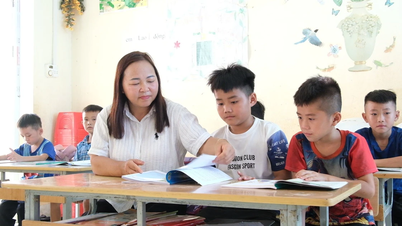
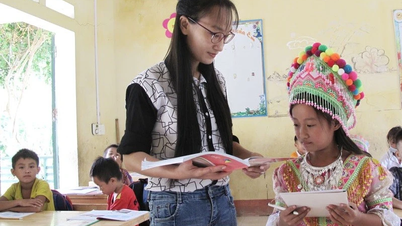




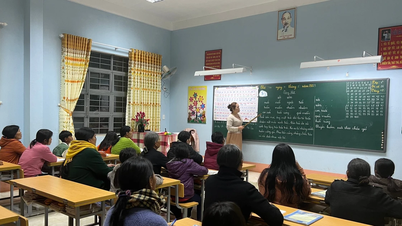
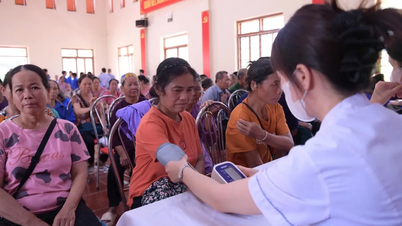


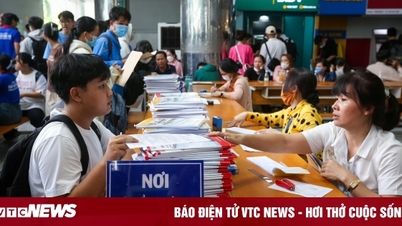











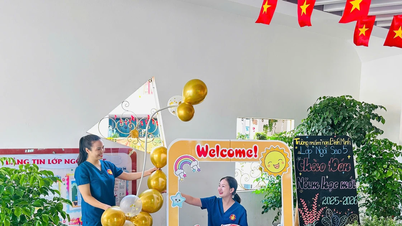




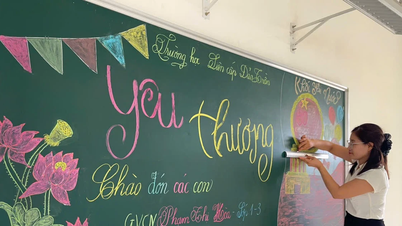



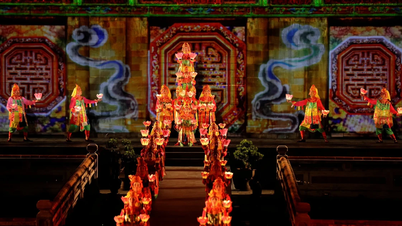


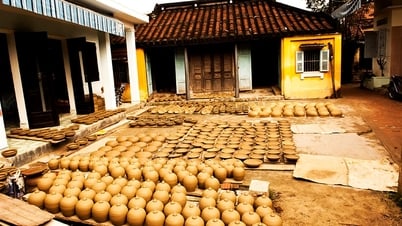























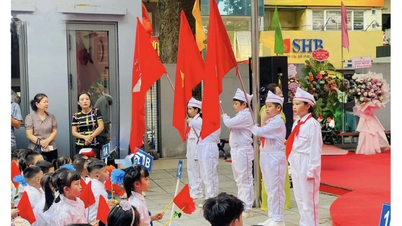



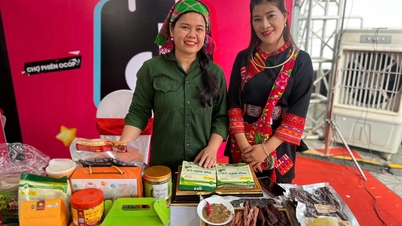






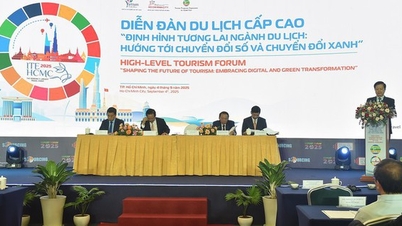

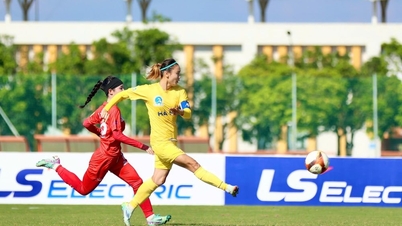




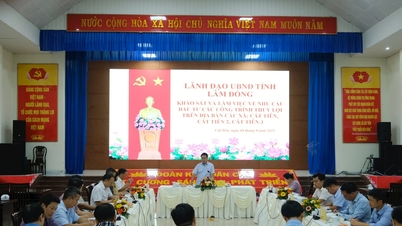




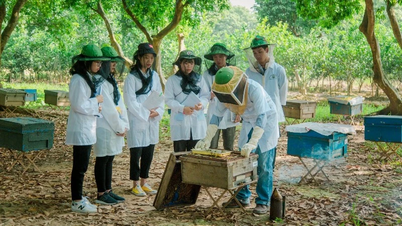


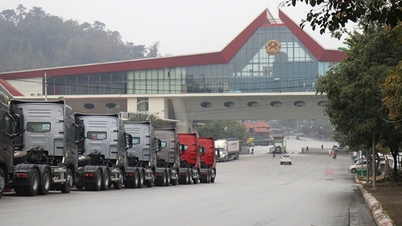







Comment (0)